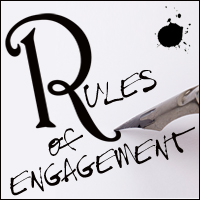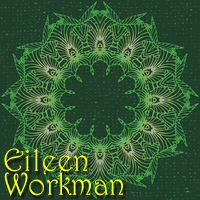.
 A blog for fiction writers and impending writers. An editor’s perspective.
A blog for fiction writers and impending writers. An editor’s perspective.
• Next post • Previous post • Index
Active Writing (Part 3): Active Composition (Plotting)
To recap: I look for active writing—the life of a novel—on three distinct levels: 1. Voice. 2. Language. 3. Plot.
The late, great Elmore Leonard addressed this dilemma very well: “I try to leave out the parts that people skip.”
Simply put: Tell an exciting, engaging story. A writer divulges the highlights and skips the low points. Determining those potential chapters, scenes, paragraphs, sentences and words to exclude is no less important than what is written. Active composition is knowing the difference.
My advice (to reiterate from Simple, but Exciting): include only those ingredients that 1) build or strengthen plot development; 2) build or strengthen character development, or; 3) set the scene for the reader (where, who, when… perhaps why and how).
I shall chatter many times in this blog about the necessity of plotting… but it’s best to begin at the beginning. How does one go about preparing a good plot? It’s good to think ahead.
The most important preparation of Active Composition is this: Before you begin to write (or certainly before you write too much… as some writers approach a blank page, a fresh idea, a new novel, with blissful ignorance) is know where you’re going. Certainly before you finish your first chapter, I recommend knowing—at least intuiting—where your story will end.
Rule #14: Before you wander along too far, develop your story from A-to-Z. Meaning, formulate a solid game plan, either in your head or outlined on paper, ASAP. Be sure you have both your plot and your characters fairly well determined—with no insurmountable obstacles—from page 1 to THE END.
A hypothetical. Let’s say I want to write a novel about Lisa, a young, adopted woman with a prosthetic leg, who decides to walk from Miami to Seattle—a 3300 mile trek—to meet her birth mother for the first time.
In one sentence, I’ve outlined a credible protagonist, her intent, and the probable (or at least possible) conclusion of her ordeal. I can begin to intuit a host of conflicts and stimulating engagements along the way, an opportunity for personal growth (did I mention that Lisa’s afraid of the dark?), the chance of encountering many delightful or mischievous characters and, of course, the obligatory dramatic conclusion.
While I probably won’t know (not yet, not exactly) all of Lisa’s trials and tribulations along the way, I’m already intuiting my story ending in Seattle, with an encounter between Lisa and her mother. Will the woman be receptive? Will she be dismissive? Perhaps that element remains hazy. However, as a developing plot, I’ve mapped myself much or most of an A-to-Z game plan—a beginning to an end. I trust that I know enough about my character, and about myself as a writer, to begin my story.
It’s okay at this point that neither my protagonist nor I know what’s lurking around every corner. I may not know what specific event will transpire on page 25, or on page 250. Maybe Lisa finds true love along the way—but where? Walking through Georgia? Through Kansas? Through Oregon? Those specifics may still be whirling around my head. We need not know every detail before we embark. And even if we think we know, much will likely change as we continue the journey.
As I begin to compose the basic plot points of my novel, I’ll highlight only the highlights (and low-lights) of Lisa’s marathon walkabout that matter to a reader. It’s important to write only those situations or events that maximize drama and add relevance to your story. That’s Rule #12, by the way. I need not depict every one of the 6,508,014 steps that Lisa will endure to complete the trip—but I definitely want to mention the 2am tornado she encounters in Nebraska, the kind stranger in Tennessee, the motorcycle gang in Missouri and the moment she finds true love in Montana.
So active composition means including only the essential elements of her story, while eliminating or ignoring those parts that don’t move the plot forward. If Lisa picks up a discarded gum-wrapper on Interstate 40, outside of Rapid City—what’s the big deal? Doesn’t interest readers in the least. However, if Lisa finds a gum wrapper in Gainesville and vows to pick up every piece of rubbish she discovers along the way—that development becomes an important character trait and a plot point! As an author, I need not document every piece of trash she picks up, but show me a few unique examples… oh, and include the discarded Lottery ticket she plucks from the roadside in Buzzard Springs—that happens to be a $180 million winner. That’s probably worth a mention.
So, yeah, Rule #12: Leave out the boring parts. (Write only what matters to your story.)
.
• Next post • Previous post • Index
.
 As a writer, I’m deeply aware of how wonderful it feels to be contacted by someone who’s read my work and felt moved enough by my ideas to reach out and let me know how much I’ve touched them. That’s why, as a reader, I’ve personally never been shy about reaching out to those authors whose works have in turn touched my own heart, to let them know that their effort has not been in vain.
As a writer, I’m deeply aware of how wonderful it feels to be contacted by someone who’s read my work and felt moved enough by my ideas to reach out and let me know how much I’ve touched them. That’s why, as a reader, I’ve personally never been shy about reaching out to those authors whose works have in turn touched my own heart, to let them know that their effort has not been in vain.